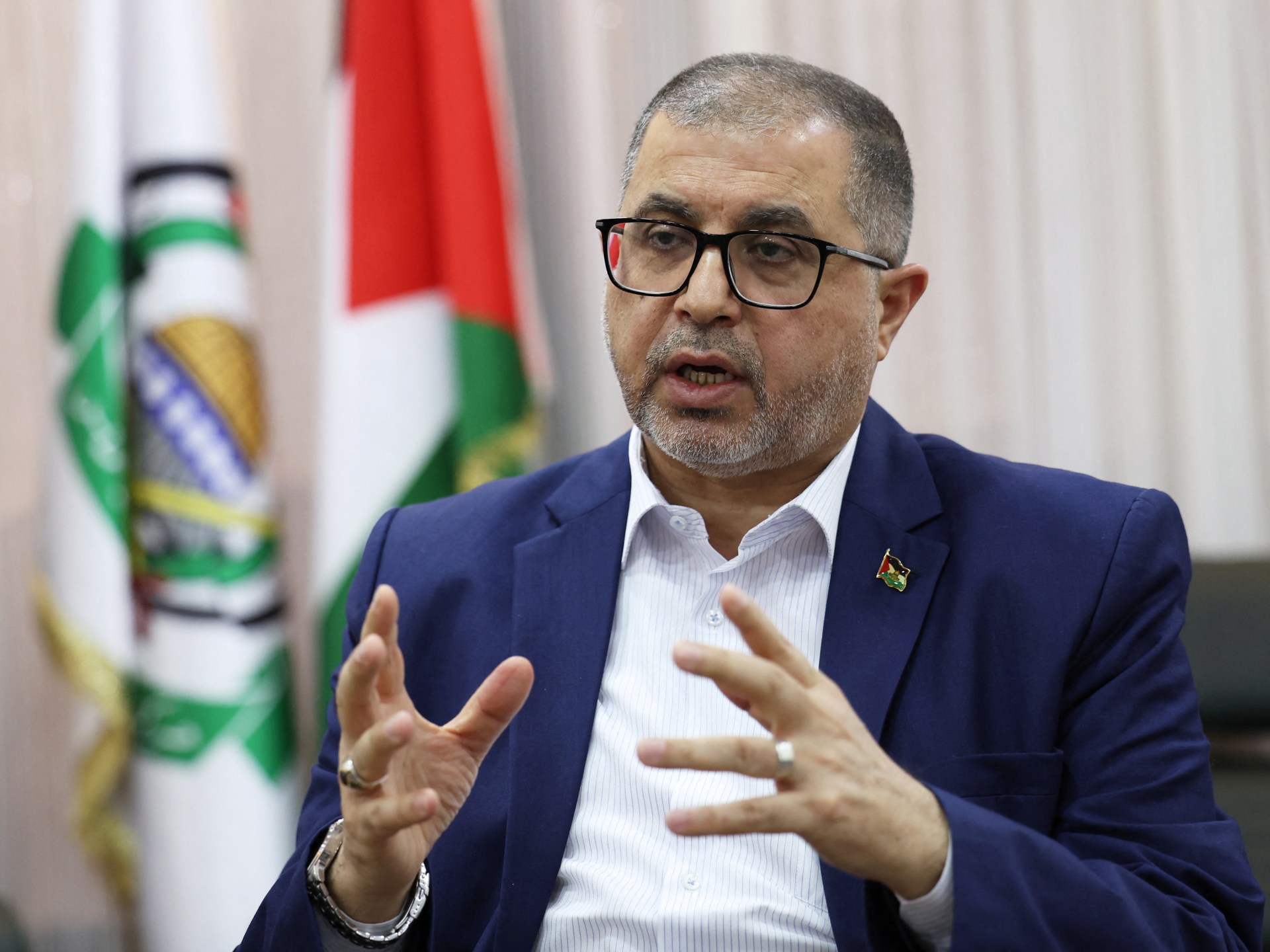Political leaders of the Palestinian Authority have resigned as a result of the Hamas-Israel ceasefire, even as President Donald Trump and his team have made widely denounced assertions about “cleaning out” Gaza and Israel’s “biblical right” in the occupied West Bank.
Speaking to Al Jazeera, Basem Naim, a Hamas leader based in Doha, said the group was “interested to meet with anyone who can help us achieve our goals, which are the goals of our people”. He cited Palestinians who fled or were forced to leave their homes after the Nakba in 1948, when Israel was established on the majority of Palestine’s historical territory, or in subsequent wars, as well as statehood, self-determination, and the right to return.
This includes the Trump administration, Naim said. “If there is any chance to meet with any party, including the Trump administration, to discuss in detail how we can achieve such goals, I think there would be no veto within the movement and no objections”.
“In politics, it is not about liking someone or not liking someone” Naim added, in reference to the US president. “It is about the interests of all parties”.
Naim’s comments followed similar sentiments shared by Hamas’s senior official, Mousa Abu Marzouk, in an interview with The New York Times on January 20. Abu Marzouk said that the group was “prepared for a dialogue with America”, and praised Trump as “a serious president”, crediting him with ending the Israel-Hamas war.
Hamas’ comments appear to indicate an approach to a US administration that, in their opinion, will adopt a more optimistic stance on the conflict despite its continuing unwavering support for Israel.
Short-term ceasefire, long-term strategy
Naim praised Trump’s participation in the ceasefire talks, which had been stalled under President Joe Biden, and expressed confidence in the outcome. He told Al Jazeera, “We are committed to the deal and making every effort possible to give this deal a chance to succeed.”
He added that there aren’t any significant differences between Republicans and Democrats because the US-Israel strategic alliance is “so strong.”
We still aspire that the current administration will change and adopt a new American perspective on the Palestinian issue, he continued. I’m certain that we will work with any party who is prepared to do it if this occurs.
Naim may voice cautious optimism, but he is also concerned about Trump’s long-term plans, citing the comments about Israel’s “biblical right” to the occupied West Bank by Trump’s nominee to be US ambassador to the United Nations, Elise Stefanik, as “disappointing” and “dangerous”.
He warned that the West Bank’s situation is extremely volatile, with Israeli forces conducting deadly raids after the ceasefire with Gaza and Israeli hostilities increasing.
“We are talking about a very radical, extreme political group of people”, he said. I believe it will take time before there will be another explosion if nothing happens from above, especially from the Trump administration and the United States.
“When it comes to the current situation, change in the United States has helped in reaching a ceasefire agreement”, he added. Before the ceremony, “President Trump made it clear that he wanted to see this war end, and he put pressure on the situation to do so.”
However, Naim said that Trump’s ostensible support for further Israeli land grabs in occupied territory and the possibility of a formal West Bank annexation were deeply troubling.
“If we are looking for stability, security, and prosperity in the region, I think it is very dangerous,” he said.
I’m sure that Trump is aware that a war in the region does not serve these objectives, as Naim said, “if he intends to stand firmly behind the promises he made, that he wants to see an end to all these wars, that he wants to see peace, stability, and normalization,” Naim said.
He must put pressure on Netanyahu and his racist government and coalition to stop acting as a rogue state, a state above the law, or to achieve stability and security in the region and to concentrate on other issues.
“Personally, I believe he will do it”, he added.
Not going anywhere, exactly?
Hamas emerged from the 15-month conflict demonstrating its resilience despite Israel’s relentless military efforts to end it, according to Sultan Barakat, a political analyst and professor of public policy at Hamad Bin Khalifa University in Qatar.
According to Barakat, “They are not going anywhere,” adding that Trump cannot avoid continuing to support the organization as a result.
Hamas, for its part, recognises Trump’s decisive role over his predecessor, while understanding that his administration does not necessarily signal an improvement.
“It’s not about him being better for the Palestinians. But I think that they saw the difference he made when he entered the negotiations, the pressure he was able to exert”, said Barakat. “With Biden, for 15 months, they were fed lots of promises, and many red lines that Israel crossed with no consequences”.
“They do see him as a serious person who said ‘ Stop'”, he added. “But it doesn’t mean that he’s going to be on the side of the Palestinians”.
Barakat pointed out that Hamas had other positive impressions of US policy toward Palestine in the past, most recently when the organization changed its charter and eliminated language that explicitly demanded Israel’s destruction.
But the United States “failed them”, Barakat added. He continued, the terms of the second and third phases of the agreement, which deal included reconstruction and governance in Gaza, remained ambiguous.
Still, Trump was able to break through a stalemate.
They have exceeded what is expected of a world leader with Biden, according to Biden. And not only the Palestinians, I think everybody involved in the process felt the same”, Barakat said. He “introduced numerous red lines,” which were all crossed. He couldn’t do anything”.
Barakat, who was involved in negotiations between the US and Afghanistan’s Taliban, under the first Trump administration, noted that a similar dynamic played out at the time.
Source: Aljazeera

Leave a Reply